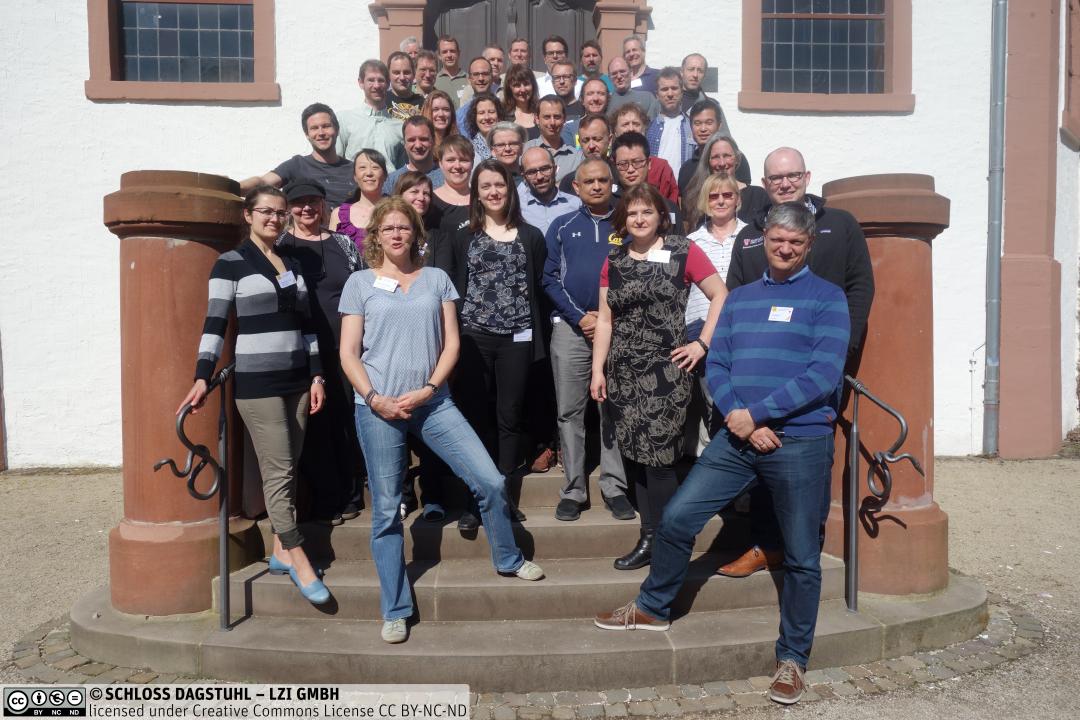|
|
||||||||||||||||||
Prof. Marai co-organizes Dagstuhl meeting on visualization of biological data
Participants: G. Elisabeta Marai
URL: https://www.dagstuhl.de/en/program/calendar/semhp/?semnr=18161 Professors J. Aerts (Leuven University, Belgium), N. Gehlenborg (Harvard), G.E. Marai (UIC), and K. Nieselt (University of Tuebingen, Germany) organized a week-long international meeting on “Biological Data Visualization: Crossroads” at Dagstuhl, at the Leibniz Center for Informatics, Germany, with support from the German federal and local government. The center hosts invitation-only week-long meetings on cutting-edge/current research topics in computer science. 45 invitees from academia, research labs, industry, bioinformatics, biology and computer science attended the event from April 15-20th. Motivation The rapidly expanding application of experimental high-throughput and high-resolution methods in biology is creating enormous challenges for the visualization of biological data. To meet these challenges, a large variety of expertise from the visualization, bioinformatics and biology domains is required. These encompass visualization and design knowledge, algorithm design, strong implementation skills for analyzing and visualizing big data, statistical knowledge, and specific domain knowledge for different application problems. In particular, it is of increasing importance to develop powerful and integrative visualization methods combined with computational analytical methods. Furthermore, because of the growing relevance of visualization for bioinformatics, teaching visualization should also become part of the bioinformatics curriculum. With this Dagstuhl Seminar we want to continue the process of community building across the disciplines of biology, bioinformatics, and visualization. We aim to bring together researchers from the different domains to discuss how to continue the BioVis interdisciplinary dialogue, to foster the development of an international community, to discuss the state-of-the-art and identify areas of research that might benefit from joint efforts of all groups involved. Thus during the seminar we envision to address the following topics:
While emphasis of topics is put on different, highly challenging problems in biology, it is also envisioned to identify newly needed visualization paradigms and developments that can help to solve these challenges. Thus further topics may be added, depending on the specific interest of the participants. As one outcome of the seminar, we plan to summarize the results in a white paper, in which the computational, the visualization and the application domain aspects are collected and published to not only ensure that a broad audience is reached but also that our crossroads journey may continue. Date: April 15, 2018 - April 20, 2018 |